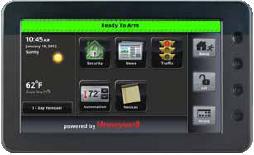We get a lot of questions about how central station monitoring works, and so I thought it was a good idea to sort of explain how we do central station monitoring and why we partnered with our central station.
First, I think it’s worth noting that most alarm companies will tell you that they do the central station monitoring. The truth is, most security companies don’t actually monitor your alarm, they outsource it to a company. So when you ask them about their central station, they are probably telling you about someone else’s central station. It’s not really dishonest, but we prefer to be completely transparent about how we work so that you can make a better, informed decision.
 We chose to partner with Criticom Monitoring Services (CMS) because of their incredible track record. While most alarm companies use a central monitoring station that is UL listed, which means they meet UL’s rigorous standards for quality, some central stations go way above and beyond those standards, and that is what CMS does.
We chose to partner with Criticom Monitoring Services (CMS) because of their incredible track record. While most alarm companies use a central monitoring station that is UL listed, which means they meet UL’s rigorous standards for quality, some central stations go way above and beyond those standards, and that is what CMS does.
The most attractive features of CMS, in our opinion, was their load balancing and redundant station locations. While most UL listed central stations are one building, somewhere a bit remote and probably very secure, CMS has three different locations from which they answer calls: one in New Jersey, one in California, and one in Florida (where Alarm Grid is headquartered).

They also have load balancing, which means when they get flooded with calls, they re-route them to the location that has less volume. What that means is when there is an event (hurricane, snow storm, etc.) that causes a lot of systems to go off, and the central is inundated with calls, because your system is monitored by Alarm Grid and CMS, your alarm signal will still get the priority response you need without any delay.
Why does it all matter? Well, think about what would happen if we had only one central station here in Florida. Sure, we’d be UL listed. We’d have a great, secure location, all our fire extinguishers would be in the right places, we would have two redundant servers, multiple lines coming in, etc. But, if there were a hurricane, there is a chance that we would have to shut down for a short time to make sure our staff were safe. Even if we didn't have to shut down, our operators would have so many false alarms coming in that our response for real alarms may get delayed.
As a result of using CMS, not only do you not have to worry about natural disasters that are happening where the central station is located (think Hurricane Sandy in New Jersey), you can be certain that 24 hours a day, someone is looking out for you and ready to respond immediately to any emergency.




 We chose to partner with Criticom Monitoring Services (CMS) because of their incredible track record. While most alarm companies use a central monitoring station that is UL listed, which means they meet UL’s rigorous standards for quality, some central stations go way above and beyond those standards, and that is what CMS does.
We chose to partner with Criticom Monitoring Services (CMS) because of their incredible track record. While most alarm companies use a central monitoring station that is UL listed, which means they meet UL’s rigorous standards for quality, some central stations go way above and beyond those standards, and that is what CMS does.

 Introducing Alarm Grid's Zombie Motion Detector
Introducing Alarm Grid's Zombie Motion Detector

